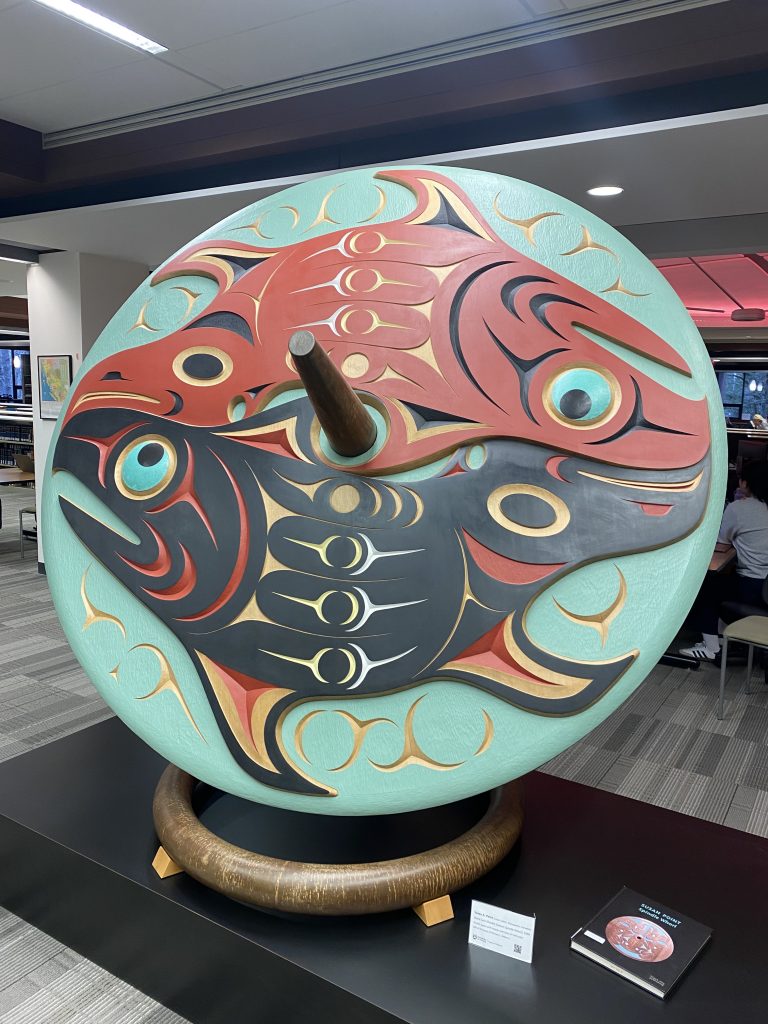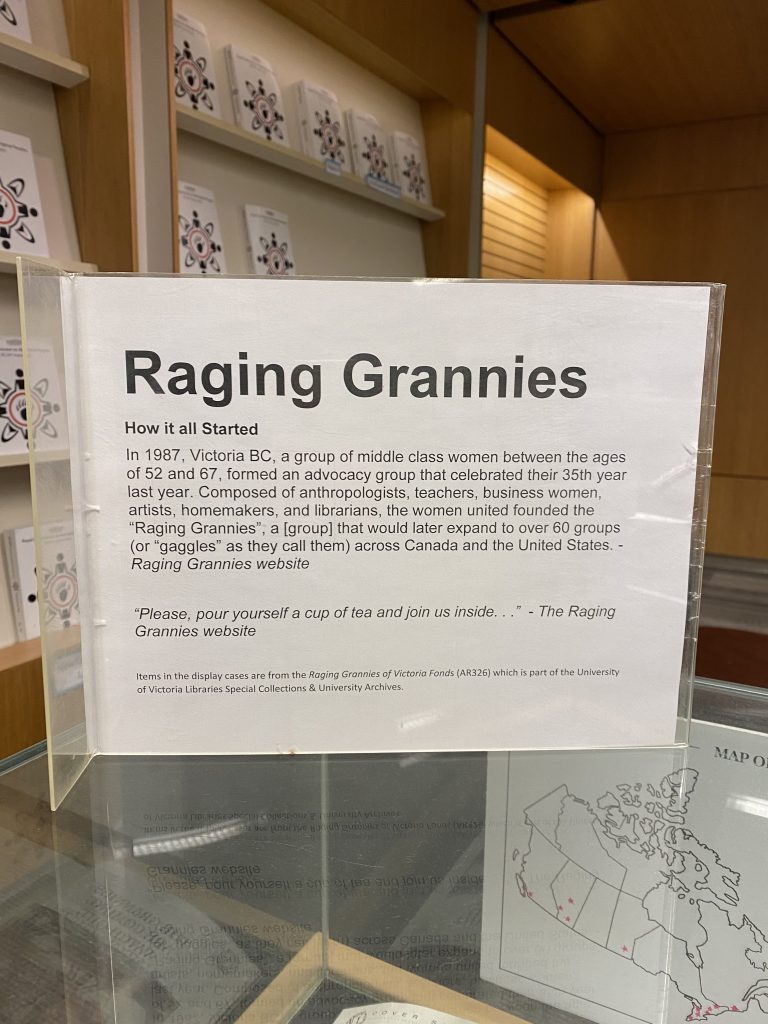In November, I was invited to participate in the Global South Colloquium of CAPI: the Center for Asia-Pacific Initiatives of the University of Victoria on Vancouver Island. This year’s theme for the colloquium was “Asia in World History: Indian Ocean Perspectives.” This was the perfect place to think through issues of peace and decolonization in the (early) thought of K.M. Panikkar, and how he conceived of the Indian Ocean as a realm of shared anticolonial solidarities.

The colloquium was held in the Law Library of the Fraser Building. Once I had given my paper and received feedback (especially from the amazing Nikhita Obeegadoo!)I was slowly able to focus my attentions on my surroundings. What was there to see around the library, when seen through the lens of peace? The biggest eye catcher, without doubt, is artwork by Susan Point, a Musqueam Coast Salish artist who works in the Coast Salish tradition of Vancouver Island. She is famous for taking the spindle whorl as a starting point – a disk with a pole inserted through the center, used to prepare wool that would then be woven into garments and ceremonial blankets – but used here as a circular canvas for exploring Coast Salish culture in contemporary terms. Given the nature of the canvas, I couldn’t help but think of artwork from India using the Gandhian charkha (spinning wheel) as a base.

Nearby were very different items, from the University of Victoria’s Special Collections & University Archives. The city of Victoria on Vancouver Island is also the birthplace of a very different kind of art: the street theater and satirical song lyrics of a peace and antinuclear protest group known as the Raging Grannies. Their protest started locally, in reaction to the threat to health and environment posed by the visit of US Navy warships and submarines in the waters surrounding Victoria, some of them powered by nuclear reactors and/or equipped with nuclear arms. For this reason, the group called themselves NERT (Nuclear Emergency Response Team). According to the women themselves, however, the protest was never fully local: they had started with street theater, wearing lab coats and taking Geiger counters into local malls, but then saw “their movements repeated on TV during the Chernobyl tragedy”. This provided the movement with both urgency and a global context.

Soon, however, the women found that they were most effective by subverting the stereotypes of older women, appearing as “harmless little old ladies” in order to get close to their intended target. They dress the part, carry flowers, and stage knit-ins instead of sit-ins. According to their own philosophy, “Grannying is the least understood yet most powerful weapon we have. Sometimes, looking back, we can see grannying was the only thing that could have met the need.” They reinforce this stereotype in the way they dress. Soon, Victoria was just one of many local “gaggles”. Other places in Canada followed suit, before spreading south of the border. There is no central organization: all it takes to start a gaggle is to gather “women of a certain age” committed to peace, social justice, environmental sustainability, and non-violent protest strategies.
And so, a highly original international peace movement was born. One of the ways in which the ideas of this otherwise decentralized movement can be traced is through their song bank. Given the group’s history, I couldn’t help doing a deep dive to see how “global” the group framed their mission. Results are mixed: while the songs are certainly alive to the global consequences of North American policy choices, those North American policy choices are certainly the main concern. To the tune of “Down in the Valley”, for instance, they sing:
Down in the valleys, the valleys so low / Hang your heads sadly to know our drones go / Bomb-dropping drones go, dears / Bomb-dropping drones go / Hang your heads sadly knowing that our drones go
Pakistanis love family, Afghanis do too / Angels in heaven know why we’re blue / Know why we’re blue, dears / Know why we grannies are blue / Angels in heaven know we’re wretched and blue
Not all songs are based on a well-known tune. The following lyrics just carry the suggestion of “rap or use 99 bottles of beer if you must”:
How many civilians of other lands / Will die for imperial aims / How many lives will we snuff out / For greedy corporate gain? / Afghanistan or Pakistan… War is so yesterday / We voted for change, not more of the same / So end all wars today!
The most recent anti-war songs focus on Gaza, although some of the songs about Palestine date back to the Obama administration. In terms of new grannies songs, gaggles from the US appear the most productive currently. Since the first protests in Victoria almost forty years ago, the grannies have incurred the wrath of many Canadian politicians and attracted a fair amount of scholarly attention – most analysis of their work is referenced here. They are still very much a North American phenomenon, but they seek to encourage activism globally, and to be a fully international movement. Perhaps we will find new additions to the song bank from gaggles outside North America soon.